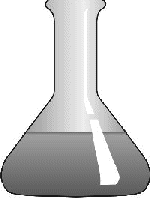 Vol. 5, No. 3, 1999 Page 1&6
Vol. 5, No. 3, 1999 Page 1&6 
 Vol. 5, No. 3, 1999 Page 1&6
Vol. 5, No. 3, 1999 Page 1&6 |

The mixture of pesticides, herbicides, and fertilizers commonly found in America's groundwater may be harming children's developing brains and increasing their aggression, according to a report by researchers at the University of Wisconsin.
 Warren P. Porter and colleagues spent five years testing the effects of mixtures of
agricultural chemicals, at levels commonly detected in groundwater, on the behavior,
immune system function, and endocrine hormone levels of mice. The study focused on
three of the most commonly used chemicals: the insecticide aldicarb, the herbicide
atrazine, and nitrate, a chemical fertilizer.
Warren P. Porter and colleagues spent five years testing the effects of mixtures of
agricultural chemicals, at levels commonly detected in groundwater, on the behavior,
immune system function, and endocrine hormone levels of mice. The study focused on
three of the most commonly used chemicals: the insecticide aldicarb, the herbicide
atrazine, and nitrate, a chemical fertilizer.
The researchers found that a mixture of these chemicals altered the thyroid hormone levels and immune system functioning of young mice, and that exposure to either a nitrate/atrazine mixture or a mixture of all three chemicals changed the mice's patterns of aggression toward intruder mice. Results showed significant seasonal variation.
Porter et al. note that changes in thyroid hormone levels can cause increased irritability, learning problems, altered sensitivity to stimuli, and even disrupted development in utero. "Thyroid hormone levels also affect corticosteroid levels," they note, "which implies altered aggression levels and immune properties."
Porter et al.'s findings in animals support the conclusions of an earlier study (see related article, Crime Times, 1998, Vol. 4, No. 3, Page 1) that revealed increased aggression, as well as problems with motor control, memory, and eye-hand coordination, in Mexican children regularly exposed to agricultural pesticides. Elizabeth Guillette, the lead author of that study, told Crime Times, "Overall, disruptive behavior was the norm with exposed children."
Porter and colleagues say their findings call the EPA's testing standards for agricultural chemicals into question, because these chemicals are not studied in combination. "The single most important finding of the study is that common mixtures, not the standard one-chemical-at-a-time experiments, can show biological effects at current concentrations in groundwater," Porter says.
"Endocrine, immune, and behavioral effects of aldicarb (carbamate), atrazine (triazine) and nitrate (fertilizer) mixtures at groundwater concentrations," W. P. Porter, J. W. Jaeger, and I. H. Carlson, Toxicology and Industrial Health, Vol. 15, No. 1-2, Jan.-March 1999, pp. 133-150. Address: W. P. Porter, National Center for Ecological Analysis and Synthesis, Suite 300, 735 State St., Santa Barbara, CA 93101. (See also: "Groundwater pesticides: interactive effects of low concentrations of carbamates aldicarb and methomyl and the triazine metribuzin on thyroxine and somatotropin levels in white rats," W. P. Porter et al., Journal of Toxicology and Environmental Health, Vol. 40, No. 1, Sept.1993, pp. 15-34.)
"Pesticides may harm brain, study says," Marla Cone, Los Angeles Times, March 15, 1999.
